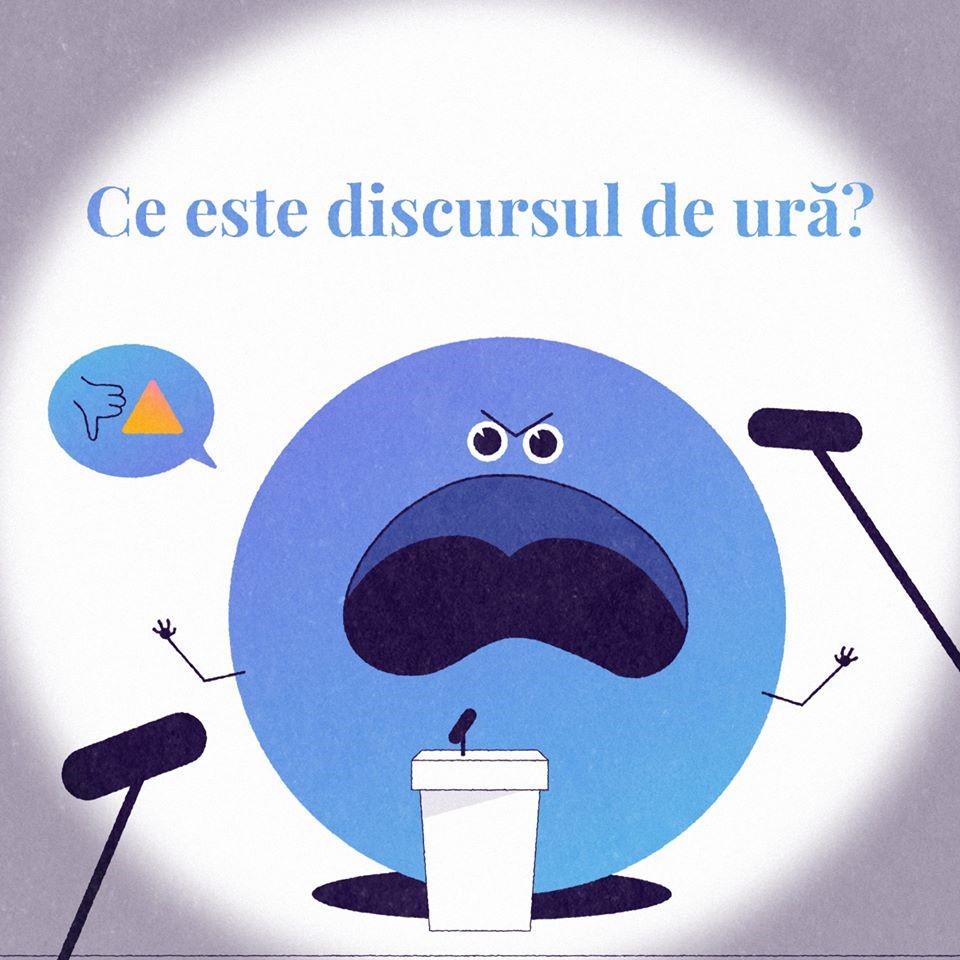back
Human rights experts call on authorities to introduce sanctions for hate speech

There are still a few months to go before the presidential elections this autumn, and from the experience of previous election campaigns, during this period some candidates and politicians, as well as their supporters, launch various messages in the public space that incite hatred and discrimination.
There are still a few months to go before the presidential elections this autumn, and from the experience of previous election campaigns, during this period some candidates and politicians, as well as their supporters, launch various messages in the public space inciting hatred and discrimination, as well as attacks on the person to denigrate their opponents. At the same time, hate speech is increasingly promoted on social media. That's why human rights experts are calling on the authorities to introduce sanctions for hate speech. Hate speech is the use of intolerant and aggressive expressions that can lead to stigmatisation and violence against a person or a group of people. In 2016, the whole of society was disturbed by the misinformation about the 30 thousand Syrians", which was heavily publicised during the presidential election campaign. It was not only false information that misled voters, but also an act of discrimination and incitement to hatred against ethnic Arabs. In the same election campaign, numerous messages discriminating on the basis of gender or marital status were disseminated. Homophobic expressions and incitement to violence Irina Corobcenco, a human rights expert with Promo-LEX, an organisation that has been monitoring hate speech in politics and the media for several years, says hate speech and attacks on individuals are common not only during election campaigns but also outside them. "Politicians and party supporters are both perpetrators of hate speech against opponents and one of the groups affected by this type of speech. For example, in the context of the new local elections in 2018, instigating messages of violence by representatives of a political party were recorded, urging voters to 'get out the pitchforks'. And in 2019, in the general local elections, some candidates promoted prejudices related to people with disabilities in a sarcastic manner, as well as homophobic expressions to ridicule political opponents," says the expert. The most affected groups are women, people with disabilities, politicians and LGBTI people Indeed, the few elections that took place in our country in 2018 and 2019 (new local elections, general local elections and parliamentary elections), were marked by an avalanche of hate speech and incitement to violence in a political context. , Promo-LEX's Analytical Note argues the importance of completing/adjusting electoral legislation with provisions defining hate speech and incitement to discrimination in electoral processes. The document was sent to both the Parliament and the Central Electoral Commission. "We need to understand that hatred and discrimination promoted by politicians, who are considered the most important people in the state, contribute to increasing the level of tension and hatred in society," adds Irina Corobcenco. ECRI report: Hate speech is on the rise in Moldova The concern that hate speech in electoral campaigns is on the rise in Moldova was also reflected in the "Fifth report on Moldova", prepared by ECRI (European Commission against Racism and Intolerance). According to this report, hate speech against Roma, LGBTI and black communities is on the rise in our country and the authorities are failing to take a strong stand against these manifestations of intolerance. ECRI experts noted that in 2015-2017 in Moldovan courts there were only 6 cases of hate speech and called on the authorities to develop a strategy that would ensure that they are prevented, effectively prosecuted and punished. At the moment, there are no express regulations in Moldova to sanction hate speech. "In order to allow the criminal sanctioning of this type of speech, it is important that the Parliament adopts the draft law No 301/2016 on the regulation of hate crimes", Irina Corobcenco is convinced. Thus, electoral legislation must be adjusted by prohibiting and sanctioning hate speech in electoral campaigns, and the Audiovisual Council must apply the provisions of the Audiovisual Media Services Code and sanction hate speech in audiovisual products. Dorin Cimil, president of the Central Electoral Commission, confirms the existence of the problem of hate speech during election periods and says that electoral and human rights experts have made a set of proposals, including adding to the Electoral Code, so that people who use hate speech in election campaigns can be sanctioned. Have your fundamental rights and freedoms been violated? Call the free "Hotline" 080080030 from landlines or mobile phones and we will help you be heard and refer you to the relevant public institutions. Lilia Zaharia